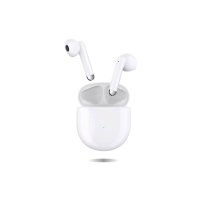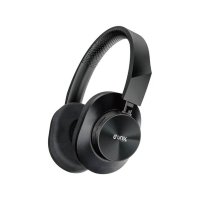Wireless Vs Wired Headphones: Which is Right for You?
In the world of audio, choosing the right headphones can be a daunting task, especially when deciding between wireless and wired options. Both types have their own set of advantages and drawbacks, and your choice largely depends on your personal preferences and needs. Let’s dive into the pros and cons of each to help you determine which is right for you.
Wireless Headphones
Pros:
Freedom of Movement: One of the biggest advantages of wireless headphones is the freedom they offer. Without cables tethering you to a device, you can move around freely, making them ideal for activities like exercising or commuting.
Convenience: Wireless headphones often come with features such as Bluetooth connectivity, voice assistants, and touch controls, which can enhance the user experience. Many models also support quick pairing with multiple devices.
Portability: With no cords to manage, wireless headphones are generally easier to store and carry around. This makes them a great choice for on-the-go use.
Improved Technology: Modern wireless headphones come with advanced technologies like noise cancellation, which can significantly improve the listening experience.
Cons:
Battery Life: Wireless headphones require batteries, which means they need to be charged regularly. While battery life has improved, it's still a factor to consider, especially on long trips.
Audio Quality: Although wireless audio quality has improved, it can still be affected by factors like signal interference and compression. High-end wired headphones might offer superior audio fidelity.
Price: Wireless headphones with advanced features tend to be more expensive than their wired counterparts.
Connectivity Issues: Sometimes, wireless connections can be unstable or experience dropouts, particularly in areas with a lot of wireless interference.
Wired Headphones
Pros:
Superior Sound Quality: Wired headphones generally provide better sound quality due to the direct connection, which reduces the risk of audio compression and interference.
No Battery Required: Wired headphones do not require charging, so you won’t need to worry about running out of battery during use.
Reliability: With a direct connection, wired headphones offer a stable and consistent audio experience with no risk of signal dropouts.
Cost-Effective: Generally, wired headphones are more affordable than their wireless counterparts, making them a good option for those on a budget.
Cons:
Limited Mobility: The primary drawback of wired headphones is the restriction imposed by the cable. It can be cumbersome during physical activities and may limit movement.
Cable Management: Cables can get tangled and may be prone to wear and tear over time, which can affect their longevity.
Device Compatibility: Some modern devices, like smartphones, are moving away from headphone jacks, which could require you to use adapters or special connectors.
Less Convenience: Wired headphones usually lack the advanced features of wireless models, such as built-in voice assistants or touch controls.
Which is Right for You?
Choosing between wireless and wired headphones depends on your specific needs and lifestyle:
For the Tech Enthusiast: If you love the latest technology and value convenience and advanced features, wireless headphones might be the better choice for you.
For the Audiophile: If superior sound quality is your top priority and you don’t mind dealing with cables, wired headphones will likely meet your needs.
For the Active User: If you need headphones for exercising or traveling, wireless options provide the freedom to move without being constrained by cords.
For the Budget-Conscious: If you're looking for a cost-effective option without compromising on sound quality, wired headphones are a solid choice.
Ultimately, both wireless and wired headphones have their own set of benefits and drawbacks. By considering your personal preferences and how you plan to use them, you can make an informed decision that enhances your listening experience.



